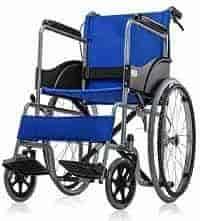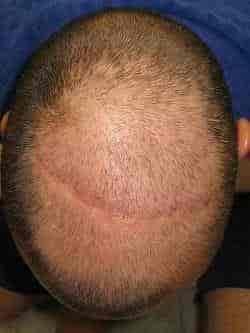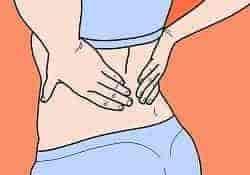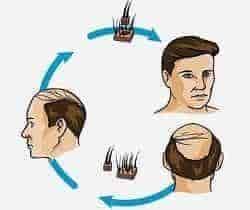Toothache at Night: How to Deal with the Pain
Author: Dr. Yvette Porter | April 15th, 2018

You woke up with a start. Your clock says it’s only 2 a.m. but here you are, reeling in pain instead of collecting your 40 winks. The toothache that you felt earlier is back with a vengeance.
Dental Distress
Toothaches come and go. Their severity also varies. It can be mild or it can be excruciating. It can affect young or old alike.
According to Australia’s Oral Health Tracker for March 2018, 16.2 percent of adults were reported to have toothaches in the last 12 months. In another report published in the Journal of Dental Research, as many as 3.9 billion people around the globe suffer from major untreated oral problems.
In Australia, tooth decay is the most common chronic disease. It is also reported to affect 35 percent of the world population as indicated in the Global Burden of Disease Study.
Tooth decay happens when the enamel of your teeth is destroyed by plaque. This sticky substance is where bacteria thrive and it is produced when leftover food and saliva mix. Plaque build-up cause cavities and gum problems.
Other causes may be periodontal disease or an infection in the structures around your teeth such as gums, alveolar bone and periodontal ligament. The inflammation of the dental pulp tissues or pulpitis is also another reason. A cracked, chipped or broken tooth can also cause pain as well as sinusitis or ear infection.
Night-Time Woes
You might be wondering why your toothache chose to make its presence felt after the sun has gone down. There are several reasons that may be attributed to tooth pain getting worse at night.
If it happens after dinner or a late night snack, there is a chance that you have not brushed yet or as thoroughly as you need to. Some food may still be stuck in between your teeth or around the gums that may have aggravated the pain.
If you also suffer from temporomandibular joint disorder (TMD) or when you grind your teeth due to stress, this may be the reason for your pain while you are sleeping.
It could also be that you were already experiencing a toothache during the day but you were too busy or distracted to notice it. However, just when you thought the pain went on its merry way, the toothache comes rushing back. When all you want is a good night’s sleep, you find yourself wide awake with a dental malady.
The most probable reason why it hurts more at night is blood flow. When you lie down, blood rushes to your head and face, and the pressure of all this blood can cause pain in those sensitive areas in and around your mouth. The throbbing sensation you get from a toothache may be a result of the blood flow in this area.
If you find yourself in this dreary dental situation, do not despair. While you wait for morning to seekdental services to alleviate and address your toothache, there are several ways to help relieve night-time tooth pain at home.
Here are some home care treatments that can help dial down the pain:
1. Care for sensitive teeth
If your teeth are sensitive, avoid eating hot or cold food so it will not aggravate the pain. Also, use toothpaste and mouthwash especially designed for sensitive teeth and gums.
2. Tea for toothache
Soothe your tooth with tea. You can use peppermint tea as it has a nice flavor and numbing effect for your mouth. Swish it around your mouth as a mouthwash or you can also drink it.
Black tea may also be used. The strong tannins in black tea can help subdue the pain. Place a wet and warm tea bag against the affected tooth for temporary relief.
3. Swish with saltwater
For sore or infected gums (and even sore throat), you can mix a teaspoon of salt to warm water. Be careful that it is not too hot to avoid scalding your mouth. Gargle this saltwater concoction for about 30 seconds to get rid of food debris that might be irritating your gums or affected tooth.
Not only does the hot, salty water cleanse your mouth, it also reduces the swelling by drawing out the excess fluid that may be causing it.
4. Remove food debris
Remove leftover food in your mouth by flossing, brushing, and rinsing gently with cold water.
Make sure that you do this carefully so as not to further irritate sensitive gums. Also ensure that the toothbrush you are using is either specially designed for sensitive teeth or has bristles that are not too soft or not too hard. It should fit your mouth comfortably and should easily access hard to reach areas.
Gently brush along the gum line and avoid sawing motions. Instead, use circular motions to brush especially on the chewing surfaces of your teeth.
5. Love the clove
A study by the British Association of Oral and Maxillofacial Surgeons found that the ingredient called eugenol found in cloves is an effective anesthetic. It also has antibacterial properties that reduce inflammation in the mouth.
You can buy clove oil from most supermarkets as a home remedy. But take note that because of its taste and side effects when eaten, it is advised that only adults and older children who are not likely to swallow it should use it.
Dip a clean cotton swab or ball into the clove oil until it is soaked before applying it to the affected gum area. If it is too strong, you can use olive oil to dilute it.
6. Elevate the head
When sleeping, prop up your head with pillows so that it is higher than the rest of your body. It is important that you elevate your head to keep blood from putting extra pressure on the affected area in your mouth.
7. Ice it
For a swollen face and gums, put an ice compress on the outside part of the throbbing area. You can also suck on an ice cube or chip to numb the pain of the affected tooth.
You can also take over-the-counter pain relief if the above mentioned home remedies are not enough to alleviate the pain. As soon as the dental clinic opens, pay your dentist a visit to pinpoint the source of the pain.
It is crucial that you do not ignore a toothache especially if it runs for more than two days as it can lead to more serious complications. Also, make sure that you maintain ahealthy oral care regimen andchoose the best dentist that can be your perfect partner to care for your teeth. Doing these will ensure that you feel better and smile brighter.
*****
AUTHOR BIO
Dr. Yvette Porter is the founding dentist at Apple Dental in Newstead, Brisbane, which she started over 11 years ago, and continues to own and practice there today. She works with a team of female dentists who aim to provide gentle, and affordable dental care to patients in Brisbane. Dr. Porter is a member of the Australian Dental Association and is passionate about family, and children’s dentistry, hoping to make their dental experience truly pleasant.





.jpg)



